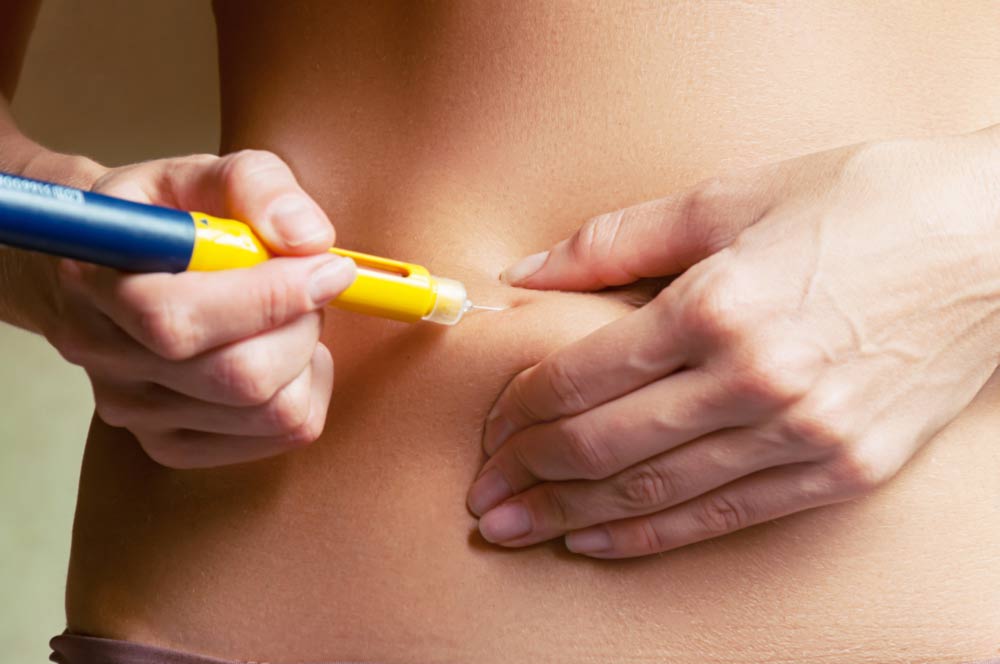Your doctor at the Pacific Fertility Center Los Angeles can provide OHSS treatment using the safest and most advanced methods of care within the fertility industry. Under PFCLA’s care, this complication can be resolved so you can realize your goal of growing your family.
Ovarian hyperstimulation syndrome (OHSS) is a medical condition that can develop as a result of hormonal therapies and medications used to stimulate egg production. OHSS can occur in women undergoing in vitro fertilization (IVF), intrauterine insemination (IUI) or ovulation induction.
Under normal circumstances, a woman produces one egg per month. However, women struggling with infertility may be given medications to stimulate additional egg production.
In some cases these medications can overstimulate the ovaries, and result in over 20 eggs being produced in one cycle. This can cause the ovaries to become swollen and painful, with a risk of fluid leaking to the stomach and chest areas. Many cases are mild, while others may result in severe illness.
Symptoms of OHSS typically begin several days after using injectable medications. Some of the most common symptoms of OHSS include:
Severe symptoms of OHSS include:
While you are taking fertility drugs, your doctor will continue to monitor your health. It’s imperative that you make your doctor aware of any abnormalities, issues or concerns. Heightened estrogen and human chorionic gonadotropin (hCG) levels, or large follicles can increase the risk of OHSS. For mild cases of OHSS you may consider:
Based on the severity of your condition, OHSS can also be treated with medication. In some instances, hospitalization may be required. At PFCLA, we design your treatment plan to keep you relaxed and comfortable while decreasing your ovarian activity.
Discover various fertility services that can minimize your risk of possible health complications due to assisted reproductive technology.
.jpg)
Leverage frozen embryo transfers to preserve your fertility, give your body downtime between treatments or after procedures and repeat IVF cycles if your first attempt is unsuccessful.
.jpg)
Experience no risk of medication side effects and no waiting periods with natural IVF, a form of IVF that doesn’t use fertility medications and follows your natural cycle.

Explore medications helpful in overcoming female infertility and achieve a successful pregnancy with options that cater to your fertility needs, health and personal preference.

Pacific Fertility Center Los Angeles offers patients quick and effective OHSS diagnosis and treatment. If you are undergoing fertility treatments and are experiencing painful or unusual symptoms, request a visit with your doctor online or call our location nearest you.
*Every patient’s IVF journey is unique and with different risk levels present. Consult with your doctor to understand the risks associated with your chosen fertility treatment.
Fertility Services
Why PFCLA
Resources
Subscribe to our newsletter
Note: This is not intended to be a substitute for professional medical advice, diagnosis or treatment. Information provided is for general educational purposes only and is subject to change without notice. Speak to your doctor directly with any questions you may have regarding a medical condition. Any information contained herein does not replace any care plan as determined by a physician.
¹Birth rate percentage using aggregate data from ALL age groups on the Live Births Per Intended Egg Retrieval (ALL EMBRYO TRANSFERS) of Patient's Own Eggs chart for 2020. Reference: PFCLA SART | NATIONAL SART
© 2024 PFCLA. All Rights Reserved. Privacy Policy.